Review
Until 2008, the city van sector in the UK consisted almost entirely of car-derived vehicles. But after the arrival of the Citroën Nemo, Fiat Fiorino and Peugeot Bipper trio, offering nearly three times the cargo capacity and more rugged construction, things changed rapidly.
The car-derived offerings dwindled until now only two – the Vauxhall Corsavan and Ford Fiestavan – are left.
It would be easy to assume that this particular niche is nearing extinction – but the two contenders continue to battle it out head to head and are in fact picking up sales.
Last year the Corsavan sold 2,400 models, while the Fiestavan picked up almost twice as many sales. But this month a brand new Corsavan is being launched and bosses at Vauxhall have high hopes that the tables might just turn in their favour.
In an exclusive interview with Commercial Fleet, Steve Bryant, Vauxhall CV manager said: “The city van market changed dramatically when the Fiorino and its clones arrived in 2008. Most of the other manufacturers then stopped making car-derived vans. We have carried on producing the Corsavan and we feel it has managed to be a great success by fulfilling the needs of buyers with what it has on offer.
“When we stopped making the Astravan, which had always been a great success for us, a lot of fleets changed down to Corsavan or up to Combo so we don’t feel we are at a disadvantage by not having a hi-cube city van to offer fleet buyers.”
The new Corsavan is totally fresh inside and out and offers better payloads, better ride and handling and improved fuel economy. Bryant has high hopes that the new model will help narrow the sales gap between it and the rival Fiestavan.
He said: “With all the improvements that we are now offering, this van deserves to be much closer to Fiestavan in terms of sales and we believe we will now begin to start catching up.”
Priced from £10,995 to £13,695 ex-VAT, the new model is immediately recognisable as part of the Vauxhall family.
The face has new-shaped headlights, LED daytime running lights and a low, sporty trapezoidal grille, with a chrome bar supporting the Vauxhall Griffin. The rear view is also completely new. Horizontal split tail lights help widen the van, creating a more muscular appearance.
We always considered the old Corsavan to be about as chic and stylish as commercial vehicles get, but this new model takes things to new levels of sophistication.
The cab is all new too. Ergonomics have been improved, with the new seats offering increased support, durability and extended travel – which is a bonus for operators covering long distances or for companies using the van as a pool vehicle.
In addition, reduced levels of noise, harshness and vibration improve the driving experience. Despite its diminutive size, there was no shortage of legroom on our test drives.
In the cargo area, the payload has been increased to a class-leading 571kg, while load volume remains at 920 litres. On the plus side, the load area features a standard wipe-clean non-slip floor and four load-lashing eyes, but on the downside – unlike in the rival hi-cubers – loads can’t be slid in and out as there is a large lip under the tailgate.
Two trim levels are available – base and Sportive. All models feature electronic power steering which boosts assistance for easier parking, but has been further optimised for a more positive and direct feel.
Six front airbags come as standard, along with the latest-generation ESP Plus, which features straight line stability control, cornering brake control, drag torque control, brake assist system, active rollover protection, hydraulic brake fade assist and hill start assist.
The new model also benefits from a raft of options, including electronic climate control, winter pack with heated seats and heated steering wheel, IntelliLink with 7-inch touchscreen infotainment system incorporating Bluetooth and DAB, 16-inch black alloy wheels and rear parking sensors. A technical pack includes forward collision alert, lane departure warning, rear camera, traffic sign recognition and following distance indicator.
Under the bonnet, balance and handling have benefited from a lower centre of gravity made possible by new chassis technology. Front and rear suspension have been recalibrated, resulting in improved stability, handling and comfort, while new engine mountings ensure smoothness at all speeds, including at idle. This also helps further reduce fuel consumption.
The Corsavan features either a 1.2-litre petrol engine – not expected to be a big seller – and a 1.3-litre diesel with either 75bhp of 95bhp on offer. The smaller power diesel is expected to take the lion’s share of fleet sales.
The diesel engines both comply with Euro 6 emissions standards without the use of an AdBlue tank and stop-start comes as standard, along with an ECO button which slightly cuts down the power. Together, they are predicted to save around 10% on fuel in urban situations, leading to an impressive 83.1mpg on the combined cycle and a low CO2 figure of 90g/km.
We tested both the 1.3 Sportive 95bhp and the base 1.3 75bhp. The Sportive features a six-speed gearbox against the five cogs of the base version and proved a delight to drive, with plenty of power on tap and extra figure-hugging seats over the base version.
We could, for all the world, have been behind the wheel of a little sports car, with its taut handling.
Over to the model that most fleets will buy, we found that while the plastics are of equally good quality, the dash wasn’t quite so stylish as the one in the Sportive. The seats were different too, with not as much side support, although quite sufficient for general fleet usage, we reckon.
Quite often five-speed gearboxes feel as though they need an extra cog when travelling at motorway speeds but the Corsavan didn’t suffer this problem and fleet drivers should be quite happy with what’s on offer in base spec.
The 20bhp difference in output wasn’t a problem and we completed our test drive with the ECO button pushed in, though fleet drivers may be tempted to turn it off as soon as they get out of the yard.
Trevor Gehlcken



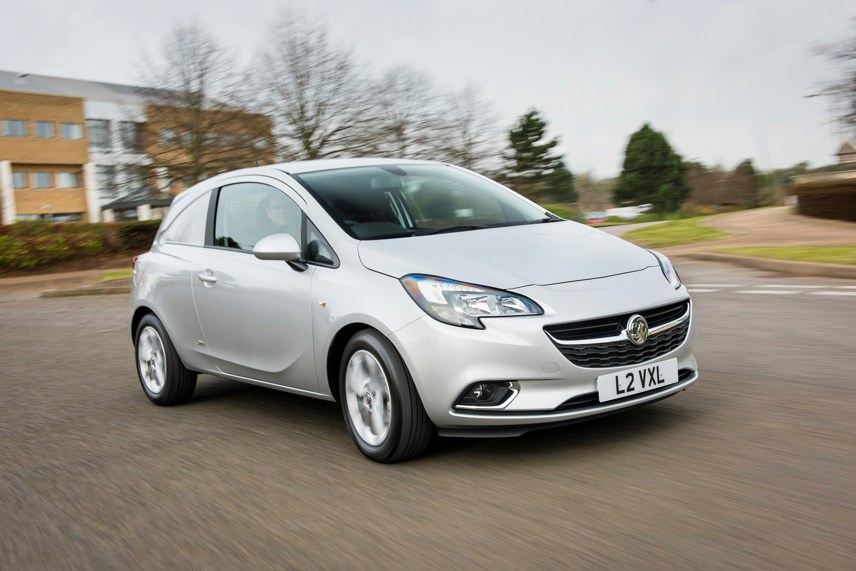
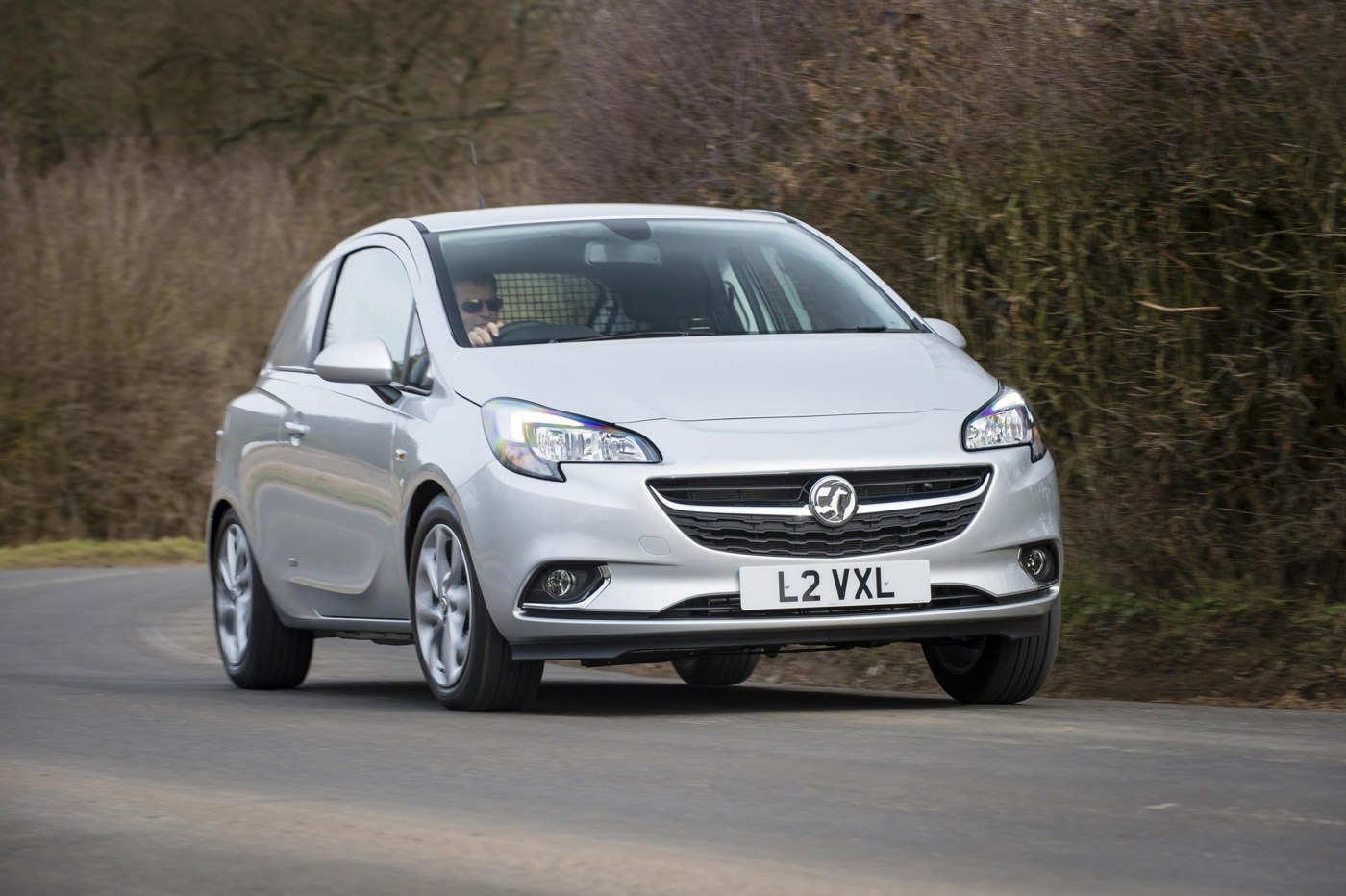
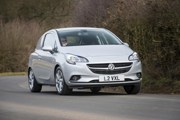
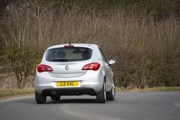
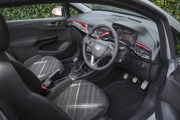
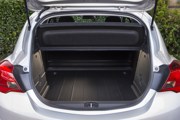
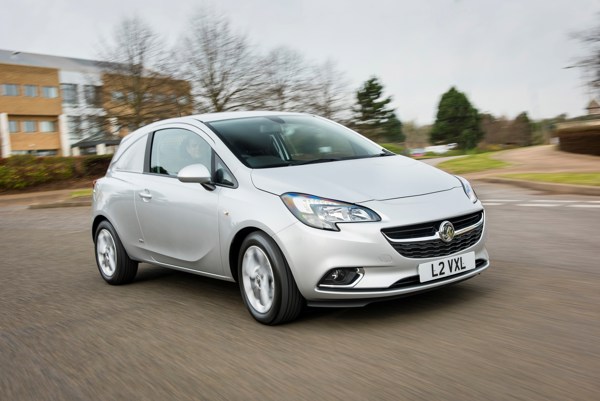
 Diesel
Diesel












